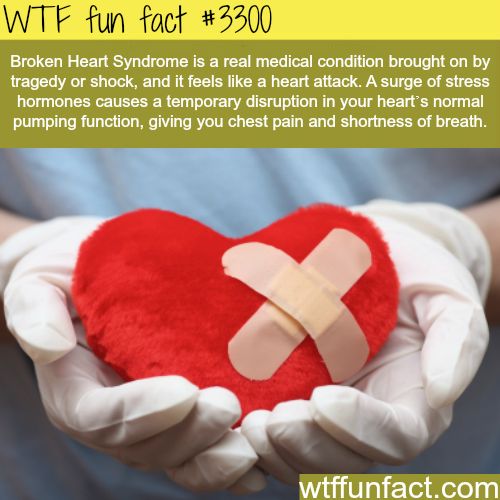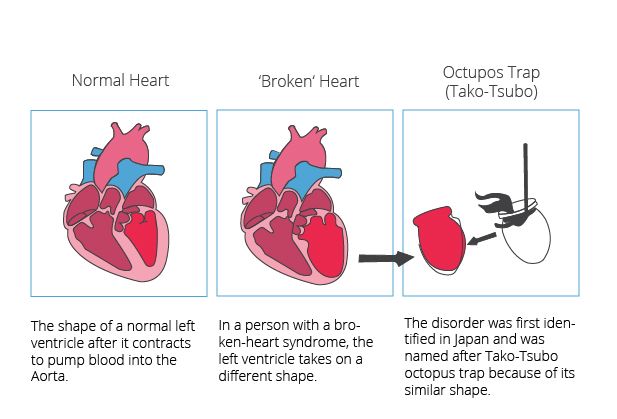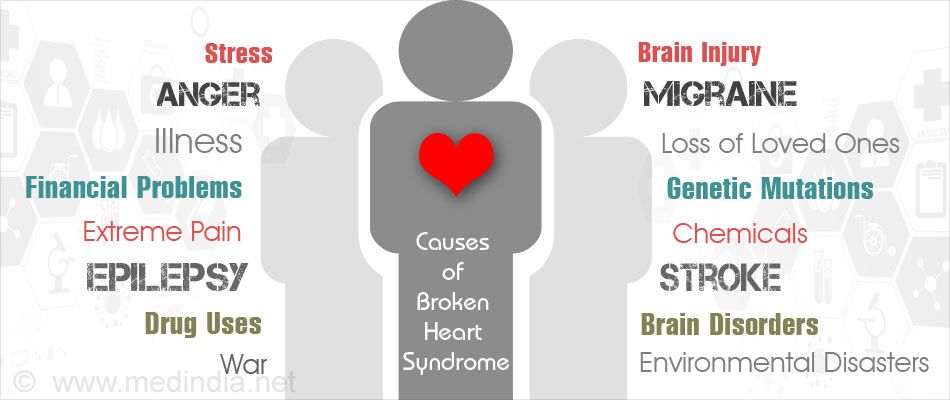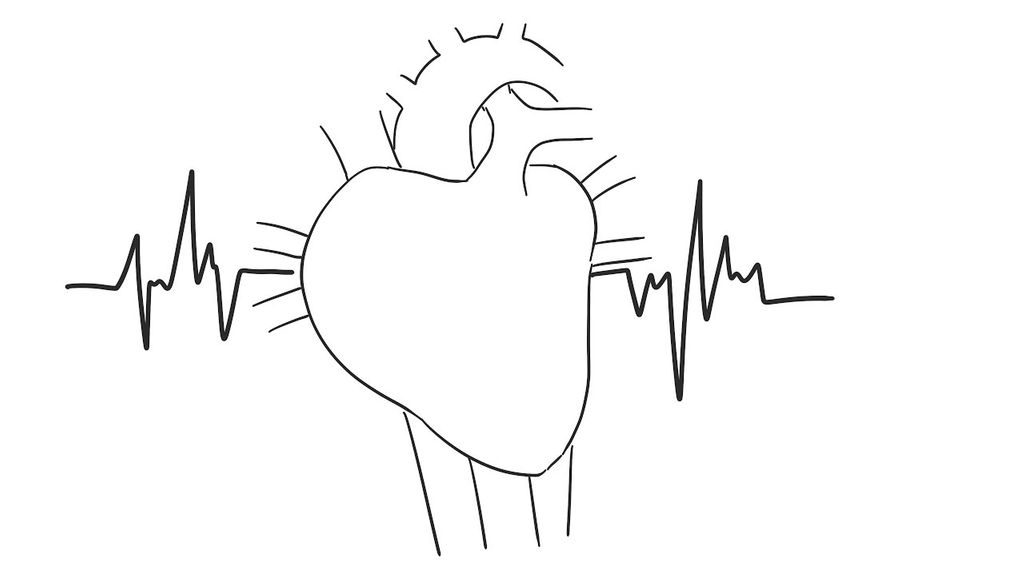Broken Heart Syndrome
May 10, 2019 • 48 views
“You can die of a broken heart— it's scientific fact — and my heart has been breaking since that very first day we met. I can feel it now, aching deep behind my rib cage the way it does every time we're together, beating a desperate rhythm: Love me. Love me. Love me.” — Abby McDonald, Getting Over Garrett Delaney
When your heart breaks….. literally! When a person faces a huge heart break like the loss of a loved one, the heart literally breaks, and causes real life cardiac consequences, depression and also anxiety. This condition is known as the ‘Broken Heart Syndrome’ or ‘Stress-Induced Cardiomyopathy’ or ‘Takotsubo Cardiomyopathy’. The syndrome was discovered by Japanese scientists and they named the disorder ‘Takotsubo’ after an octopus trap which has a narrow neck and round bottom. In the studies, they found out that, during an attack the right ventricle of the patient was shaped like the ‘Takotsubo’. The doctors have said that the patient could mention an attack caused by the Broken Heart Syndrome to be symptoms of a heart attack.

Broken Heart syndrome is a temporary heart condition that is often brought by a very stressful situation like the death of a loved one. This condition can also be triggered by an underlying serious physical illness.
In, Broken Heart Syndrome, the patient’s heart does not function properly. Often, a part of their heart does not pump blood properly or at times maybe completely stops pumping blood causing the heart to stop temporarily. The remaining parts of the heart may function normally or even under forceful conditions. Broken Heart Syndrome could be caused due to the reaction of the patient’s heart to the sudden extreme surge of stress hormones.

The symptoms of the disorder usually include:
●Chest pain
●Shortness of breath
●Usually mimics the symptoms of a heart attack
These symptoms usually tend to go away in a few days but are also known to be retained even after 5 years of diagnosis and treatment. However, in most cases if the symptoms are persistent for a long time it might be a heart attack.
Causes of the disorder are not known in certainty. It is believed by doctors that the cause of the disorder is a sudden extreme surge of stress hormones in the patient’s body. A sudden surge of stress hormones like adrenaline, might be the reason that the patient’s heart is temporarily shut down. But how these hormones are affecting the human body to this extent is still unclear. A temporary constriction of the large or small arteries are known to play a large role in the disorder.

Some potential triggers of the disorder are:
●News of an unexpected death of a loved one
●A frightening medical diagnosis
●Domestic abuse
●Losing — or even winning — a lot of money
●Strong arguments
●A surprise party
●Having to perform publicly
●Job loss
●Divorce
●Physical stressors, such as an asthma attack, a car accident or major surgery
How is BHS Different from a Heart Attack?
Heart attacks are generally caused by a complete or near complete blockage of a heart artery. This blockage is due to a blood clot forming at the site of narrowing from fatty buildup (atherosclerosis) in the wall of the artery. This is not the case with BHS. IN BHS, the arteries are not blocked, in some cases though, the blood flow might be constricted.
People at Risk of this Disorder:
●Gender: Women are more at risk of this disorder than men.
●Age: BHs is known to affect people over the age of 50 or 60.
●Neurological History: If the person has had any history of a head injury or have had epilepsy, then they are at a higher risk.
●Psychiatric History: If the person has had any history of mental illnesses then they are at a higher risk.

The disorder can cause other major disorders like a pulmonary edema, hypotension, disruptions of heartbeat and also heart failure. In very rare cases, it is fatal.
The disorder is treated with long-term treatment with beta blockers or similar medications that block the potentially damaging effects of stress hormones on the heart.
